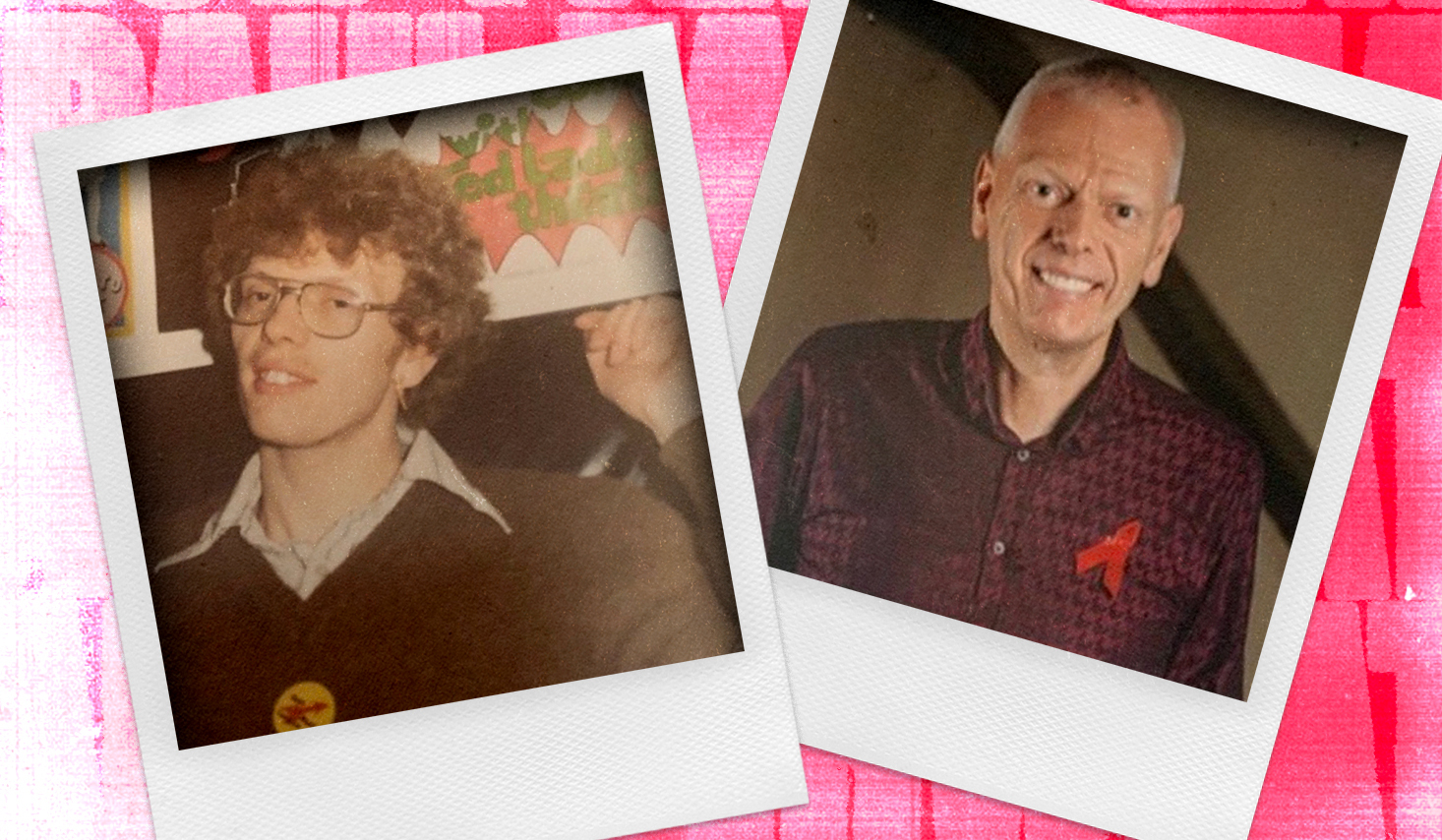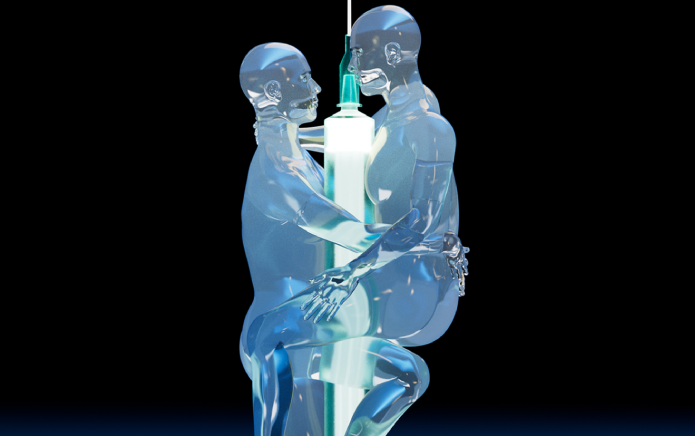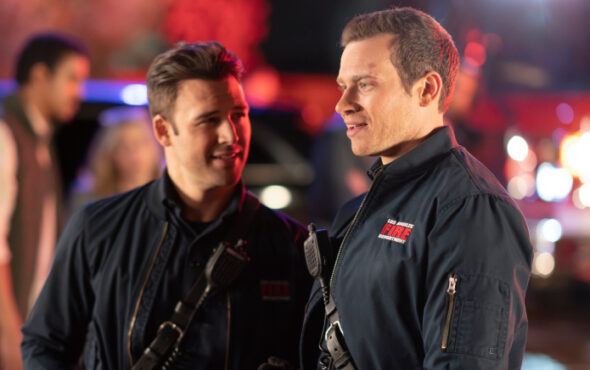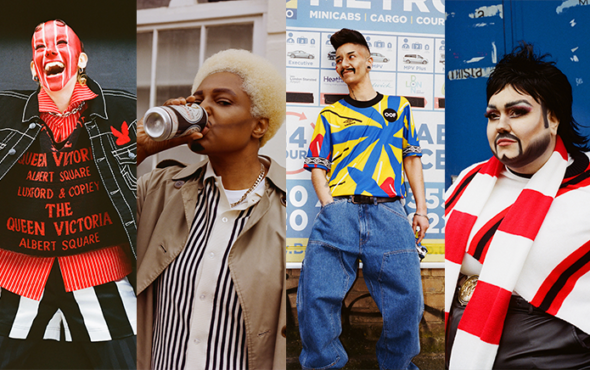
When the first cases of HIV were identified in the 1980s, virtually nothing was known about the virus except that it was fatal for those who contracted it. Initially referred to as Gay Related Immune Deficiency (GRID), gay and bisexual men in particular faced unparalleled levels of stigma in society because of the way HIV disproportionately affected them – something that only made LGBTQIA+ advocacy tougher at the time. “I worked full time on lesbian and gay equality, which was very unusual in those days,” says Paul Fairweather, a renowned human rights activist who has been at the forefront of the community response to the HIV/AIDS epidemic in the UK since it started. “I think in the beginning of the 1980s, things were beginning to change and improve and then I think HIV really, particularly in terms of stigmatising gay men, put things on hold in a way.”
As things worsened across Manchester and the North West where Fairweather was based, he began to organise meetings and lobby for those living with HIV to get the support they needed. He also wrote articles in gay media outlets to raise awareness among his peers and the wider LGBTQIA+ community, many of whom were increasingly fearful as they watched people close to them die of what was then a very mysterious condition.
“I remember the mid-1980s towards the 1990s, people, friends of mine, who were young gay men in their 20s, began developing AIDS and dying really quickly. We were supporting them, campaigning and trying to get the government to take it seriously,” explains Fairweather, who says that this was only made harder once Section 28 took effect in 1988 and prohibited the so-called “promotion” of homosexuality – which he helped organise a mass demonstration against that same year. “Beneath that was the HIV epidemic and the sense that, particularly gay men, were ‘dangerous’ and a ‘threat’ to society. So I think it linked in with all the stuff that was going on with Section 28 and the huge ignorance, the fear, because in the earliest days of the epidemic, we didn’t know what caused HIV.”
In order to help his community, Fairweather was one of six people who launched the Manchester AIDS Line in 1985. With the goal of supporting and giving advice to those affected by HIV/AIDS, it quickly became a source of comfort for anyone grappling with the virus at a time when wider society offered them little empathy.
“We started off literally one night a week with a telephone helpline. Then slowly there were more people in Manchester living with HIV, so very quickly we expanded, we got more volunteers, we got a lot of support from Manchester City Council, we got some paid staff. But also, I think the other thing was that we began to meet. I remember going to meetings in Monsall Hospital, which was the regional infectious diseases unit, and actually sitting down with consultants and doctors and talking to them, arguing with them being involved,” he remembers. “HIV transformed the relationship between doctors and patients, really. We had a really big impact in terms of actually being part of those discussions and trying to influence in terms of how they were supporting people, influencing them in terms of actually trying new medication.”
Five years after Manchester AIDS Line launched, it became the George House Trust that most people know it as today. The charity continues to provide support, advice and advocacy for people living with HIV, something Fairweather says is “still needed” despite how much attitudes and healthcare has come. “I think there’s still issues of people being scared to come out in smaller communities, I think particularly people experience more than one form discrimination,” he continues. “The stigma is still out there, but the stigma is more damaging than the disease.”
“When I was first diagnosed, I took about 12 tablets a day and I now take one tablet a day. I see my consultant every six months. My health is completely fine, so it’s completely different, but I still know too many people living with HIV who are isolated, they don’t know anybody, they’ve stopped dating,” adds Fairweather. “So I think it’s the stigma, even within the gay community, that’s still really damaging for some people. Not everyone knows about U=U or believes U=U and there’s still lots of issues about people not knowing the facts about HIV transmission these days.”
As part of his ongoing campaign work, Fairweather continues to work with George House Trust as its Positive Speakers project lead. His decades of activism recently saw him awarded with an MBE which, he says, makes him “hopeful” that he can continue teaching people about LGBTQIA+ history so the mistakes of the past are never repeated: “I think it’s really important that we learn from history… I talk to a lot of young people and they’re quite astonished by what the situation was like back then. But it’s not that long ago and things can change again, so people need to be really vigilant.”



